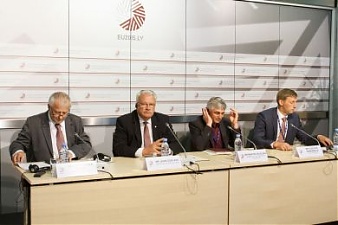Agriculture, EU – Baltic States, Forum, Latvia, Markets and Companies
International Internet Magazine. Baltic States news & analytics
Friday, 26.04.2024, 19:57
Duklavs: sector of organic agriculture is thriving in the world
 Print version
Print version |
|---|
| Photo: eu2015.lv |
Currently, the EU is intensively working on the new EU Regulation on organic farming. The EU Ministers for Agriculture also discussed the legislative proposal for the Regulation at the informal meeting in June and the Latvian Presidency endeavors to reach the political agreement on this dossier at the next Council meeting on June 16. Latvia is the third presidency, working on the Regulation on organic farming.
The aim of the proposal for the Regulation on organic farming is the improvement of legislation in organic production by removing barriers for further development of the sector, guaranteeing a fair competition among organic operators and enhancing consumers’ trust in organic products.
On 12 June, the working group discussed the tasks to be implemented in order to facilitate the development of organic farming. In the discussions, achievable objectives were set up and strategic solutions were sought to achieve the future vision: organically managed area, covering more than 50% of agricultural land area.
“The sector of organic farming is thriving and growing all over the world,” emphasised the Minister for Agriculture, Janis Duklavs, “in the European Union, the area cultivated according to organic farming rules covers 5.4% of the total utilised agricultural area. Taking into account the rapid development of organic farming, it is important for us to improve the legislative basis and set up tasks ensuring further development of the organic production.”
On June 13, the participants of the congress will visit several organic farms and processing enterprises.
The European Organic Congress brought together representatives from the European Commission, Member State Ministries, EU scientific institutions, controlling institutions, public organisations and lobbyists interested in the development of organic farming.








 «The Baltic Course» Is Sold and Stays in Business!
«The Baltic Course» Is Sold and Stays in Business!

